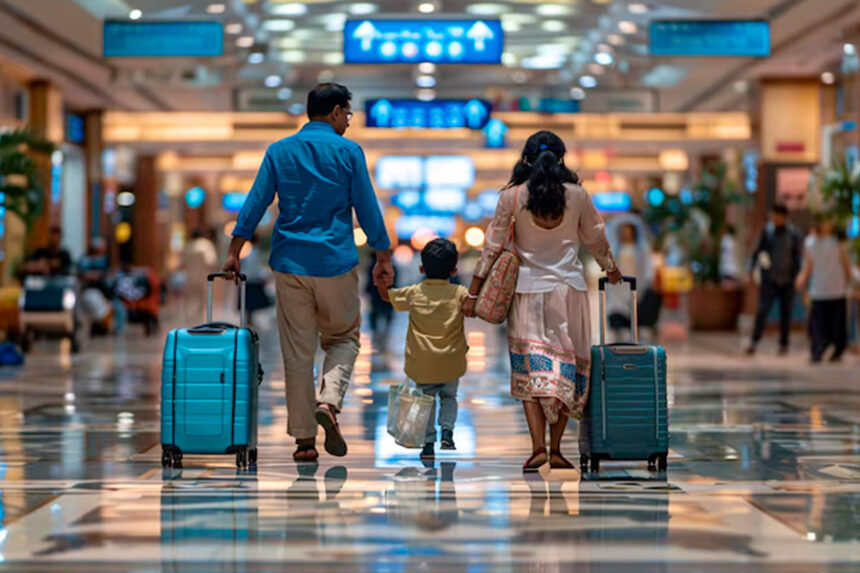The hospitality industry is experiencing a revolutionary transformation. Smart Hotels are no longer futuristic concepts but tangible realities that are reshaping the landscape of modern travel. These innovative establishments are leveraging cutting-edge technology to offer guests a seamless, personalized, and highly efficient stay. From AI-powered concierge services to rooms that respond to voice commands, Smart Hotels are redefining comfort and convenience. Behind this transformation lies a sophisticated backbone of digital infrastructure, much of which is powered by Cloud Hosting.
The Rise of Smart Hotels: A New Era of Hospitality
Smart Hotels have swiftly emerged as the pioneers of a tech-driven guest experience. Unlike traditional accommodations, Smart Hotels are designed to integrate technology at every touchpoint. They go beyond offering free Wi-Fi or digital keycards; they create immersive environments where automation, artificial intelligence, and smart devices work in harmony to elevate the quality of every stay.
The integration of Cloud Hosting is critical in making this seamless operation possible. Through Cloud Hosting, hotel systems achieve unmatched scalability, security, and accessibility, ensuring that both staff and guests enjoy uninterrupted, real-time services.
The Role of Cloud Hosting in Smart Hotels
Seamless Connectivity Across Multiple Devices
One of the defining features of Smart Hotels is the ability to connect multiple smart devices within a room and across the property. Guests can control lighting, temperature, entertainment, and window shades through a single interface, often via their smartphones. Cloud Hosting enables this interconnected ecosystem by providing the necessary storage and computational power on a centralized yet accessible platform.
Real-Time Data Processing
Personalized experiences are a cornerstone of Smart Hotels. Data analytics powered by Cloud Hosting allows hotels to track guest preferences, past bookings, and behavior patterns in real time. This capability empowers hotels to anticipate guest needs, such as setting preferred room temperatures upon arrival or offering customized dining recommendations.
Enhanced Security and Privacy
Cloud Hosting platforms utilized by Smart Hotels employ advanced encryption and security protocols to safeguard sensitive guest information. Cloud-based security ensures that all data, including payment details and personal preferences, remains protected from cyber threats.
Scalable Operations
As Smart Hotels expand their offerings, from smart lobbies to AI-driven housekeeping, they require scalable digital solutions. Cloud Hosting allows these hotels to upgrade storage, applications, and processing capabilities effortlessly, enabling rapid adaptation to growing technological demands.
How Smart Hotels Are Transforming the Travel Experience
Personalized Guest Journeys
The power of Smart Hotels lies in their ability to offer hyper-personalized stays. From selecting a room with a preferred view to adjusting the lighting ambiance to match a guest’s mood, customization is at the heart of the smart hotel experience. Automated systems, powered by Cloud Hosting, ensure that guest preferences are remembered and applied throughout future stays.
Effortless Check-In and Check-Out
Traditional front desk queues are becoming obsolete in Smart Hotels. Mobile apps now allow guests to check in, receive digital keys, and unlock their rooms without human interaction. Similarly, check-out processes can be completed in seconds via smart devices, making travel transitions smoother than ever before.
Voice-Activated Room Controls
Guests can now command room settings with simple voice instructions. Voice-controlled lighting, curtains, temperature, and even room service requests are becoming standard in Smart Hotels. These innovations enhance the guest experience while reducing the need for manual adjustments.
Automated Housekeeping Schedules
Smart Hotels are utilizing data analytics and automation to optimize housekeeping schedules based on real-time occupancy data. Guests can indicate when they prefer room cleaning, ensuring minimal disruption and maximized comfort.
Energy Efficiency and Sustainability
Eco-conscious travel is gaining momentum, and Smart Hotels are leading the way. Smart energy management systems adjust power consumption based on room occupancy and environmental conditions. This not only reduces the hotel’s carbon footprint but also aligns with the growing demand for sustainable travel options.
Immersive In-Room Entertainment
State-of-the-art entertainment systems in Smart Hotels offer guests an elevated multimedia experience. Cloud-connected televisions, streaming services, and personalized content recommendations transform downtime into engaging moments, all powered seamlessly via Cloud Hosting infrastructures.
Innovative Technologies Powering Smart Hotels
Artificial Intelligence (AI)
AI-driven chatbots and virtual assistants provide instant responses to guest queries, book services, and manage requests efficiently. AI also assists in predictive maintenance, ensuring that smart systems operate without interruptions.
Internet of Things (IoT)
The backbone of Smart Hotels, IoT devices communicate across rooms and facilities, enabling real-time monitoring and control. Smart thermostats, connected door locks, and occupancy sensors work together to optimize guest experiences.
Cloud Hosting Integration
The vast network of IoT devices and AI-powered services relies on Cloud Hosting to function harmoniously. Cloud-based systems store, process, and deliver data at lightning speed, ensuring real-time responsiveness throughout the hotel.
Mobile Apps and Digital Platforms
Mobile applications are becoming the central hub for Smart Hotels. Guests can manage their entire stay, from room preferences to restaurant bookings, through a single, user-friendly app connected via Cloud Hosting.
Augmented Reality (AR) and Virtual Reality (VR)
Some Smart Hotels are introducing AR-powered navigation systems that help guests find amenities within large properties. VR experiences, such as virtual room previews and guided hotel tours, are also enhancing the booking process.
Benefits of Smart Hotels for Travelers
Convenience at Every Step
The travel experience becomes significantly more convenient with Smart Hotels. From remote-controlled amenities to self-service kiosks, guests can enjoy faster, smoother interactions that eliminate common inconveniences.
Enhanced Comfort and Personalization
Smart mattresses that adjust firmness, mood-based lighting presets, and curated in-room playlists create bespoke environments tailored to individual preferences, making every travel experience unique.
Time Savings
Automation reduces wait times across hotel services, from housekeeping to dining reservations. Smart elevators, optimized for speed and efficiency, further minimize unnecessary delays during a guest’s stay.
Seamless Integration with Travel Itineraries
Some Smart Hotels synchronize with guests’ travel itineraries, offering timely reminders for flights, transportation options, and local attractions. This proactive support enhances the overall journey.
Elevated Safety Measures
Advanced security systems powered by Cloud Hosting and IoT devices offer enhanced guest safety. Facial recognition for room access, smart surveillance, and automated emergency alerts contribute to a secure stay.
Challenges and Considerations
Data Privacy Concerns
The vast data collection involved in Smart Hotels raises concerns about guest privacy. Ensuring transparent data policies and robust security protocols through Cloud Hosting is essential to maintaining trust.
Technological Dependence
A heavy reliance on technology may occasionally lead to glitches or system outages. Proper integration of fail-safes and reliable Cloud Hosting solutions mitigates these risks and ensures continuity of service.
Accessibility Barriers
Not all guests may be comfortable with smart technology. Smart Hotels must ensure that traditional service options remain available to cater to a diverse range of travelers.
Cost of Implementation
Developing and maintaining Smart Hotels with cutting-edge systems can be costly. However, the long-term efficiency gains and enhanced guest satisfaction often justify the investment.
The Future of Smart Hotels and Travel
Expansion of Cloud-Based Services
As Cloud Hosting becomes even more sophisticated, Smart Hotels will expand their cloud-based offerings, including more personalized AI services, real-time multi-language support, and advanced analytics for predictive guest services.
Rise of Contactless Everything
Post-pandemic travel has accelerated the demand for contactless solutions. Expect Smart Hotels to further invest in touchless payment systems, voice-activated elevators, and gesture-controlled room features.
Integration with Smart Cities
Smart Hotels are poised to integrate seamlessly with emerging smart cities, allowing travelers to navigate transportation, attractions, and hotel services through unified digital platforms, all interconnected via Cloud Hosting.
Biometric Personalization
Biometric data may soon personalize hotel experiences even further, from smart lighting that adjusts to individual circadian rhythms to health-focused room settings based on biometric feedback.
Sustainable Smart Solutions
The fusion of green technology and smart systems will lead Smart Hotels to adopt even more energy-efficient solutions, water-saving innovations, and zero-waste initiatives, aligning with the future of responsible travel.
Conclusion
The evolution of Smart Hotels is undeniably transforming the travel industry. By harnessing the power of IoT, AI, mobile applications, and most importantly, Cloud Hosting, these modern accommodations offer travelers a future-ready blend of luxury, efficiency, and personalization. As technology continues to advance, Smart Hotels will further blur the lines between comfort and innovation, offering experiences that are not only tailored but also sustainable and secure. The era of Smart Hotels has arrived, and it promises to redefine travel forever.



